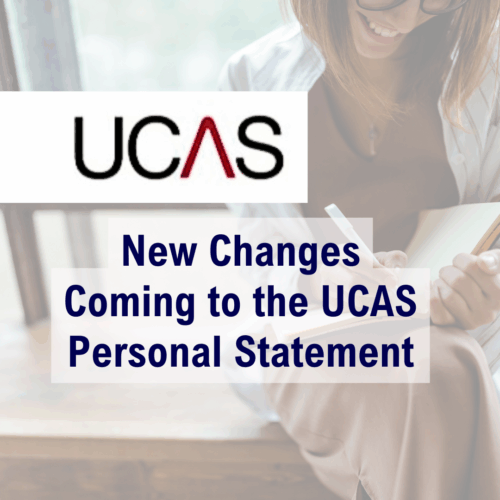For students pursuing a UK bachelor’s degree, the primary UK application system is hosted by UCAS (Universities and Colleges Admissions Service). Today, UCAS announced significant changes to the personal statement section, which US students may know as the “college essay”.
Traditionally, students have been required to submit a single personal statement of up to 47 lines or 4,000 characters. However, starting with applications for the 2026 entry, this will change. Students will now need to respond to three different sections instead of submitting one comprehensive personal statement. In addition, there will be no extenuating circumstances box.
These changes will impact current rising Juniors who plan to start their studies in the UK in September 2026. Students applying for the 2025 entry will not be affected by these new requirements.
New Personal Statement Questions
Why do you want to study this course or subject?
How have your qualifications and studies helped you to prepare for this course or subject?
What else have you done to prepare outside of education, and why are these experiences useful?
Each section will have a minimum requirement of 350 characters, indicated clearly within the question boxes. Additionally, an overall character counter will be provided to help students ensure they are meeting the necessary guidelines.
These questions are designed to help admissions officers gain a clearer understanding of an applicant’s passion for their chosen subject, their academic preparedness, and the relevance of their extracurricular activities.
Interestingly, these split sections align closely with the advice we currently give students when writing their personal statements, albeit in a less structured format. While students currently address these key areas within their personal statements, they have the flexibility to weave their responses into a single narrative. The new format, however, mandates a more explicit and structured approach.
This change will likely benefit students by providing clearer guidance on what to include in their applications, potentially making the writing process more straightforward. It also ensures that all applicants are evaluated on the same key criteria, making the admissions process more uniform and transparent.
No More Extenuating Circumstance Box
Even though there will be no extenuating circumstances section box for students to submit their circumstances in their own words, there is a section for the reference to submit when submitting the student’s academic reference. Applicants who have experienced extenuating circumstances that have impacted their education and achievements should inform their reference to ensure these details are included in their application. It is also advised for students to contact the admissions teams directly after submitting their application to discuss their circumstances further.
For students, particularly those in the US, these new sections offer an opportunity to showcase their readiness for UK higher education in a more organized manner. Addressing these three questions will help applicants highlight their passion for their chosen field, demonstrate how their academic background supports their aspirations, and emphasize the value of their extracurricular experiences. This structured approach can make their applications more compelling and focused, increasing their chances of gaining admission to their preferred UK universities.
We would love to know your thoughts about these new changes. Let us know below!






